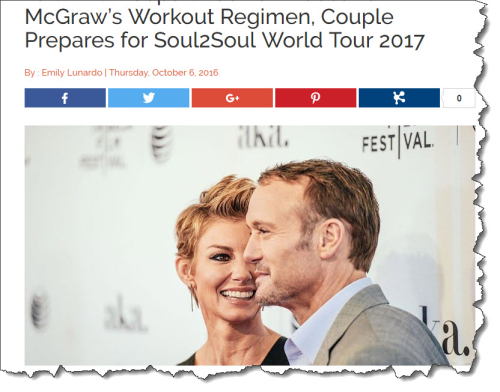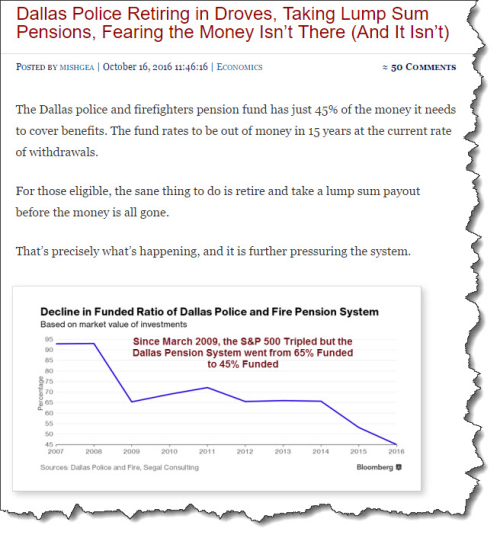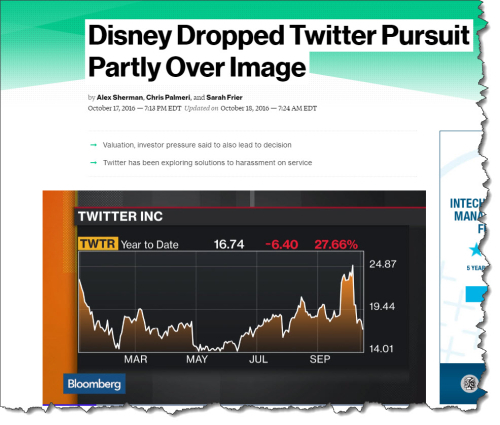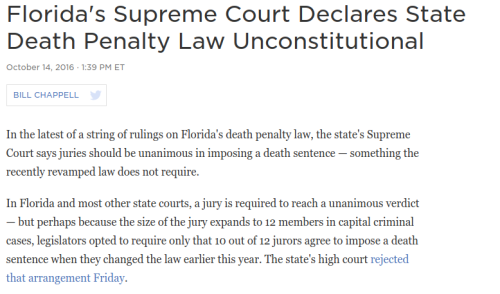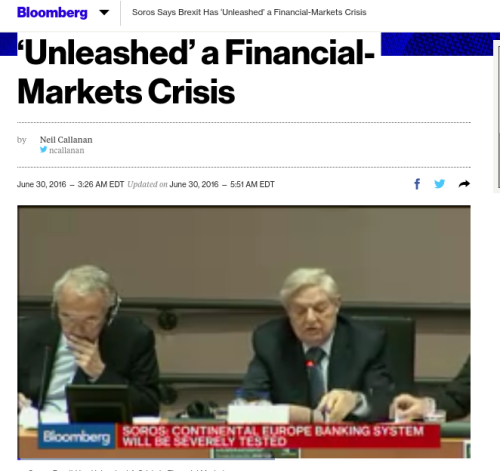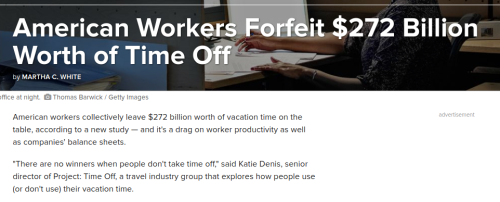James L. Paris's Blog, page 132
October 20, 2016
Rasmussen: As of Wednesday, Trump and Clinton are Tied
The debates, in all honesty, have not been decisive, and this last one was no different. Trump spoke in his usual generalizations, making the broad sorts of statements that many conservative populists cheer, but lacking the thoughtful specificity that creates any of the ���A-ha!��� moments that might prompt Clinton supporters to think twice about their choice.
And just as Trump was Trump, Hillary was Hillary.
No one���s mind is going to be changed in the wake of this final debate, and, on that note, it���s worth mentioning the results of a Rasmussen Reports poll announced Wednesday that has Trump and Clinton in a dead heat.
What makes these numbers so interesting is that other polls about which we���ve heard very recently all seem to indicate that Hillary is in the process of running away with the election, but, based on the Rasmussen data, such is not the case. Rasmussen Reports has an excellent reputation in the field of polling, and has been hailed by such politically disparate media organs as Slate Magazine and The Wall Street Journal for its accuracy.
Here is a look at Rasmussen���s latest numbers, courtesy of Newsmax:
Clinton: 42 percent;
Trump: 42 percent;
Libertarian nominee Gary Johnson: 7 percent;
Green Party candidate Jill Stein: 1 percent;
Some other candidate: 3 percent;
Undecided: 6 percent.
The bottom line is that with nobody���s vote changing along the way to November 8, this election remains the super-tight race many had anticipated at the outset. Clinton does not have this locked up, and Trump is by no means out of it.
Vote.
By Robert G. Yetman, Jr Editor At Large
University of North Dakota Now Offers Class on Starting Your Own Drone Business
Depending on your perspective, you���re likely to think this is either cool or creepy.
The folks over at Reason inform us that the University of North Dakota is doing something a little different as far as preparing undergrads for the job market of the future. The school is now offering a course in how to succeed at starting up a drone business.
That���s right���I said drone business.
The class is the brainchild of Matt Dunlevy, who teaches it along with co-instructor Rick Thomas. As it turns out, although the subject matter might seem a little curious, at first glance, the course proved to be enormously popular from the get-go; according to Reason, although it became available only two weeks before the beginning of the fall semester, space filled up in a hurry.
Make no mistake���this is a serious course. It���s divided into three phases: In the first phase, students bone up on Federal Aviation Administration (FAA) regulations on drones, and also become certified drone pilots. In phase two, students become versed in the drone industry, learning about what it is that businesses seeking to utilize drones are looking for from companies that supply unmanned aerial vehicle (UAV) services. In phase three, students must come up with their own serious drone business plans and ideas that they will present to venture capitalists.
Lest you think this is all pie in the sky (pun fully intended), the drone industry is poised for significant growth in the coming years. Reason tells us that the trade group Association for Unmanned Vehicle Systems is predicting that there will be 100,000 new jobs and $82 billion added to the U.S. economy by 2025, but instructor Dunlevy sees that estimate as somewhat conservative, saying that the 100,000 jobs could well be added as soon as in the next five years.
By Robert G. Yetman, Jr Editor At Large
October 19, 2016
Country Superstar Tim McGraw Gets into the Best Shape of His Life with Help from the Paleo Diet
Greater attentiveness to diet and exercise has become an obviously growing trend in America. After decades of excess, many are reacquainting themselves with better eating habits in order that they might feel better, as well as look better.
I���ve written before about how, as I age, the way in which I eat exerts a much stronger influence over my health and appearance. I was one of those people who could actually get away with less-than-stellar dietary habits up until not too terribly many years ago, but even for someone like me, the time comes when you have to clean up your act���literally.
On that note, one of the diet trends to which people are turning in droves is to eat in the way that cavemen would have eaten���a so-called paleo diet. The idea is that you eat only those things that a caveman would have been able to find and consume���things like meat, fish, leafy greens, and seeds.
Would a caveman ever stumble across a bag of potato chips? A piece of chocolate cake? A bowl of cereal?
It turns out that country music superstar Tim McGraw has borrowed heavily from the paleo diet to help him get back into the kind of shape he hasn���t seen for many years���maybe ever! An article over at Foods 4 Better Health about McGraw���s current fitness and dietary regimen says, in part, that the singer ���follows a near-Paleo regimen, which means it���s pretty close to full-on Paleo with a few modifications. The Paleo diet is a type of eating similar to our cavemen ancestors from thousands of years ago. It is based on a hunter-gatherer approach, and the basic principles include no processed foods, no sugar, and no grains.���
If a Paleo-type diet makes sense to you, but you would like some sound guidance on how to get started, and would further like to be sure that you���ll enjoy eating what it is that you prepare ���paleo-style,��� then the Paleo Beginners Guide may be just what the doctor ordered���literally!
How do recipes like the "Strawberry Shortcut Smoothie" or the "Chile-Rubbed Chicken Fajitas with Avocado" sound? Awfully good for a ���hardcore��� diet regimen, don���t you think?
What���s more, the Paleo Beginners Guide is not just any diet book; it is a New York Times Best Seller, and has already helped thousands of people to lose weight quickly and easily.
As great as all that is, I can go you one better ��� right now, it���s available for free. The folks behind this book say they want everyone to experience the benefits of eating Paleo, which not only helps in weight loss, but also in looking and feeling years younger, because it provides your body with the nutrients it needs.
If you���re interested in making a change���a real change���that will help you to realize better health and a better appearance, then pick up this free cookbook today; Click Here.
By Robert G. Yetman, Jr. Editor At Large
Dallas Cops, Facing Future Pension Disaster, are Taking Lump Sum Payouts and Bailing Out
As the municipal pension crisis continues to grow throughout America, some of the country���s largest and most storied cities are finding themselves scrambling to figure the best way to deal with the pronounced financial shortfalls.
I wrote recently about how the Chicago City Council hit residents with a new tax to keep solvent the Municipal Employees��� Annuity and Benefit Fund. In that same article, I pointed out that Chicago and New York are two examples of cities where more money is now spent on cops in retirement than on those actually working.
Can you say ���unsustainable?���
Now we learn that the pension fund on which the city of Dallas��� police and firefighters rely is funded at just 45 percent presently���meaning that for every dollar the fund owes in pension income, there���s only 45 cents that���s actually available. According to an article by Mike ���Mish��� Shedlock over at MishTalk.com, the current rate at which withdrawals are occurring means that the fund will be entirely out of dough in 15 years.
The word is out about just how distressed the pension fund is, and now Dallas is seeing a spike in eligible cops and firefighters electing to retire and take lump sum payments while there���s still money available���and that trend is only adding to the enormous pressure under which the fund finds itself.
Hang on to your hats, folks; this is just beginning.
By Robert G. Yetman, Jr. Editor At Large
Disney Drops Bid for Twitter Partly Because of Social Media Giant���s Image Problem
News comes that Walt Disney Co. recently decided against pursuing a bid for Twitter. As it happens, the company went to a great deal of trouble in doing its due diligence on behalf of the prospective move, and even retained the services of two investment banks, JPMorgan Chase & Co. and Guggenheim Partners LLC. As interesting as Twitter is, however, Disney decided it could not reconcile the social media monster���s market value of roughly $12 billion with the fact that it is still hemorrhaging money. In fact, according to Bloomberg, a few of the largest investors in Disney bent the ears of some key people there, declaring how unhappy they were at the prospect of the acquisition, considering that Twitter just can���t seem to get on the right track as far as financial functionality goes.
That said, regular, old business ���stuff��� is not the only reason that Disney decided against formally going after Twitter.
Turns out, according to insiders, that Disney ultimately decided that the way people ���speak��� to each other on Twitter is getting out of hand, so much so that Disney was concerned that the wholesome family image for which it is famous would likely take a hit if the company went into business with Twitter.
For its part, Twitter only recently began looking in earnest for ways that technology can help to keep the dialogue on its platform less odious, according to Bloomberg, but it would do well to make the effort a real priority ��� Disney���s decision to leave Twitter alone suggests that the matter of the harsh discourse may be more of an impediment to realizing key business objectives than Twitter execs may have previously thought.
By Robert G. Yetman, Jr. Editor At Large
October 18, 2016
Christian, Conservative Leaders Sign Letter Denouncing ���Christophobic��� Behavior of Clinton Campaign
The fallout over the Wikileaks��� breach of Clinton campaign emails continues.
As you may have heard, it turns out that many of those emails contained less than charitable references to, and thoughts about, Catholics and evangelicals.
In response, an open letter has been written that is acutely critical of the anti-Christian contents of those emails, and it has been signed by a large group of religious and political notables, including televangelist Pastor Paula White, National Hispanic Christian Leadership Conference President the Reverend Samuel Rodriguez, and former Congresswoman Michele Bachmann.
The Christian Post had an opportunity to review an advanced copy of the letter, which reads, in part:
���As Christian leaders, Catholic and Evangelical, we collectively express our outrage at the demeaning and troubling rhetoric used by those within Clinton campaign ��� and those associated with the campaign ��� to describe our communities.
���It is especially alarming that the Chairman of the Clinton Campaign, John Podesta, was copied on these emails between Jennifer Palmieri, now director of communications for the Clinton campaign, and a fellow at Podesta's Center for American Progress. Podesta's refusal to raise any objection makes him equally party to this bigotry. It is inexcusable. It is shameful. It is un-American.���
The letter goes on to specifically characterize the communications as being anti-Christian, saying, ���The WikiLeaks emails reveal a contempt for all conservative Christians, and we are ��� Catholic and Evangelical ��� united in our outrage and united in our call for Mrs. Clinton to immediately apologize for the Christophobic behavior of her associates.���
Other signatories include Focus on the Family���s Dr. James Dobson, Southern Evangelical Seminary President Richard Land, and Ronnie Floyd, former president of the Southern Baptist Convention.
By Robert G. Yetman, Jr. Editor At Large
As Insurers Flee Obamacare, 1.4 Million Could Lose Coverage Next Year
Obamacare indeed appears to be the disaster that never ends.
According to reporting from the International Business Times, nearly 1.5 million people from 32 states could see their coverage under the Affordable Care Act (ACA) go the way of the wind in 2017.
The problem, of course, is that insurance companies continue to bail on the health care exchanges, and are doing so because of���what else���cost. The requirements for insurers, including that enrollees with pre-existing conditions cannot be denied coverage, have simply made their continued participation unviable.
Although it was expected that enrollment would be substantial among higher-risk groups of people who have not, historically, maintained coverage, the belief was that the resulting higher costs incurred would be offset by the participation of younger, healthier folks who still need to maintain some kind of health insurance. Alas, not enough of that demographic has been enrolling in the ACA, finding that plans are just too expensive and happy to pay the penalty for going without coverage rather than face an onerous premium payment each month.
High-profile insurers opting to leave the exchanges include UnitedHealthcare and Aetna. The former has said it is losing about $1 billion, overall, on Obamacare for years 2015 and 2016, and Aetna expects to lose about $300 million.
Aetna CEO Mark Bertoini accurately sums up the core problem this way: ���Providing affordable, high-quality health care options to consumers is not possible without a balanced risk pool.���
That���s the essence of how insurance works ��� by pooling risk. The idea is that a large number of individuals each pay a premium into the risk ���pool,��� but that, at any one time, only a (relatively) small handful of the group will actually make a claim, and some may never make a claim. It is the reliance on these odds that allow insurance companies to do what they do and remain profitable. However, as Aetna CEO Bertoini points out, when the individuals contributing to the pool disproportionately represent those folks certain to not only make claims, but make them repeatedly, then the foundational structure that makes insurance workable is destroyed.
As for the millions who will lose coverage under the ACA in 2017, it���s important to point out that health insurance will remain available for them. However, by being unable to obtain it through the exchanges, many lower- to middle-income families face the prospect of having to pay a lot more for the coverage, because the government subsidies that are a hallmark of Obamacare will not be available for policies purchased outside of it.
By Robert G. Yetman, Jr. Editor At Large
October 17, 2016
Florida Supreme Court Shoots Down State���s Death Penalty Law
Florida is not having much luck hanging on to its death penalty.
Back in January, the U.S. Supreme Court said an element of Florida���s death penalty law was unconstitutional because it declared that judges, rather than juries, ultimately decide if convicted criminals are to be executed for their crimes. Specifically, Florida law allowed at that time for juries to merely recommend a death sentence that may or may not ultimately be imposed by the judge. The U.S. Supreme Court found that provision to be unconstitutional, saying that Sixth Amendment to the Constitution demands that juries, not judges, are to make the necessary determination of facts regarding the imposition of the death penalty.
Now, this past Friday, Florida���s Supreme Court shot down the state���s death penalty law on the basis that it did not require jury verdicts to be unanimous in imposing the sentence, saying, in part, that ���just as elements of a crime must be found unanimously by a Florida jury, all these findings necessary for the jury to essentially convict a defendant of capital murder���thus allowing imposition of the death penalty���are also elements that must be found unanimously by the jury.���
The case at issue for the Florida jurists was that of Timothy Lee Hurst, a Pensacola, Florida man convicted of murder. A 12-member jury had previously recommended death for Mr. Hurst by a vote of 7-5. Hurst will now be granted a new sentencing hearing.
As a result of this latest ruling, Florida essentially has no death penalty in Florida until the legislature decides how to proceed.
While many proponents of capital punishment will disagree, for my part, I���m happy to see this. Despite my strong conservative politics, overall, I am no fan of death penalty administration in the United States, because I���m no fan of criminal justice administration, more generally. While I remain ���sold��� on the death penalty from a philosophical perspective, in that I believe people who murder forfeit the right to hang on to their own lives, the justice system is replete with dishonesty, corruption, and opportunism to a degree that demands, in my opinion, that the power of life and death be removed from its hands.
By Robert G. Yetman, Jr. Editor At Large
George Soros Sounds the Alarm on Brexit
I���m no fan of George Soros��� hyper-progressive globalist politics, but, for those who aren���t terribly familiar with him, he���s an investor first, and has made almost inconceivable sums as a brilliant, intuitive hedge fund manager. As a matter of fact, his Soros Fund Management, LLC is considered to be one of the best performing hedge funds of all time.
Soros was not a fan of the Brexit decision, and that likely has more to do with his aforementioned globalist-centered bias than anything else, because he reportedly made more bucket loads of money after markets of all kinds tanked following the vote (Soros is a notorious bear, anyway).
Despite the fact that many markets have seen a Brexit rebound since the initial selloff, Soros has told the European Parliament that the U.K.���s decision to leave the EU ���unleashed a crisis in the financial markets, comparable in severity only to 2007/8. This has been unfolding in slow motion, but Brexit will accelerate it. It is likely to reinforce the deflationary trends that were already prevalent.���
Soros continued, ���The banking system of continental Europe has not recovered from the earlier crisis; it will now be severely tested.���
The fact is that, Brexit aside (if we can do that for the moment), the global economy, overall, has been very soft since the 2008 collapse, and fundamental economic recoveries, rooted in the underlying drivers of such things as low unemployment and significant sums for capital investment, are still a long way away in many of the world���s developed and developing nations.
Making matters worse is that as more countries pursue progressive social policies, the unsustainable financial demands those policy pursuits put on national economic infrastructures will only make matters worse. If you���re not overtly worried about an economic collapse and how it may affect you, you should at least be giving some thought to a plan as to how you might make it through the other end of the tunnel should economic calamity befall the U.S. (or wherever you live).
On that note, you might be interested in a comprehensive ebook called Surviving the Final Bubble. It is a manual that���s basically divided into two sections: the first one-third of the book addresses wealth protection and economic survival. The rest of the book deals with what to do if ���normal conditions��� do not return, and you are left facing the challenges associated with trying to survive in what become bona fide distressed conditions.
Highlights from the section on wealth protection in Surviving the Final Bubble include:
Disclosure of the three assets that do not have to be reported to the U.S. government;
Information as to why, exactly, silver may be the single best place to store your wealth;
Currency alternatives to the U.S. dollar that many believe will thrive following a collapse;
���and much, much more.
As for the rest of the book that addresses comprehensive survival, topics include:
How to have consistent, nutritious and long lasting food stores in a crisis, by storing food and water without alerting anyone;
Twelve vital skills you should know in order to weather a total collapse;
Tips to ensure the safety and well-being of children and senior citizens in a distressed environment;
Secrets on how to build strong links within the community and how to become its leader. Forget the ���lone wolf��� survivalist image; that plays well in motion pictures, but your true ���best bet��� in persisting through societal collapse will be forming alliances with others dedicated to making it out the other end of the survival tunnel.
There���s a ton of information here, for sure. Additionally, The Final Bubble comes with a 60-day, money-back guarantee; if you decide you don���t like it, for any reason, even after you have completely digested the material���you have up to two months following purchase to get your money back. How great is that?
To learn more about The Final Bubble, or to pick up your copy directly, Click Here.
(Disclaimer: The Final Bubble package contains, in part, references to various financial strategies. Although this article presents The Final Bubble as a suggested resource for survival preparedness, Bob Yetman, Jim Paris, ChristianMoney.com, and any related entities disclaim responsibility for any liability or loss incurred as a consequence of the use or application, either directly or indirectly, of any information presented therein. You should always seek the advice of a qualified professional before making any changes to your personal financial profile.)
By Robert G. Yetman, Jr. Editor At Large
Study: American Workers Not Using Time Off, and It���s Hurting All Involved
The folks over at NBC.com are reporting on a new study that reveals American workers are forgoing taking earned time off���in a BIG way. The study, assembled by Project: Time Off, a sort of ���think tank��� (with roots in the travel industry; interpret that however you wish) that specifically concerns itself with the matter of improving how vacation time is viewed by workplace culture, reveals that, collectively, American workers are leaving behind about $272 billion worth of earned time off, and that, bottom line, it���s not doing any favors for anyone involved.
For the employees not using the accrued time, the end result is burnout and an overall loss of productivity. Says career coach Roy Cohen, ���Burnout is an enormous issue. Your performance lags, which has the potential to be more damaging��� You're just not present.���
In other words, as ���bad��� as you think it might look to actually use any of that vacation time, not using, over the long term, presents a more distinct risk to your job security, in the form of stagnation that ultimately hurts job performance in a noticeable way.
As for what this does to the employer, the effect of widespread employee burnout certainly hurts productivity at the company level. What���s more, the unused vacation time appears as a liability on the company books, and, for American companies, collectively, that sum is gigantic right now. Even more ominously, that figure has grown over 20 percent just since 2015, which means it���s headed in the wrong direction fast.
Cohen succinctly summarizes what is at the core of workers��� disinclination to take time off in an ever-uncertain economy: ���A lot of people live in fear, and they work in fear that if they take time away and out of work that they're out of sight, out of mind.���
Experts say, however, that much of that fear is based on both misperception and poor communication, and that while it would be ideal for managers to do a better job in rectifying those problems from their end, employees may have to do more, themselves, to express to their bosses the workplace importance of time away.
By Robert G. Yetman, Jr. Editor At Large



